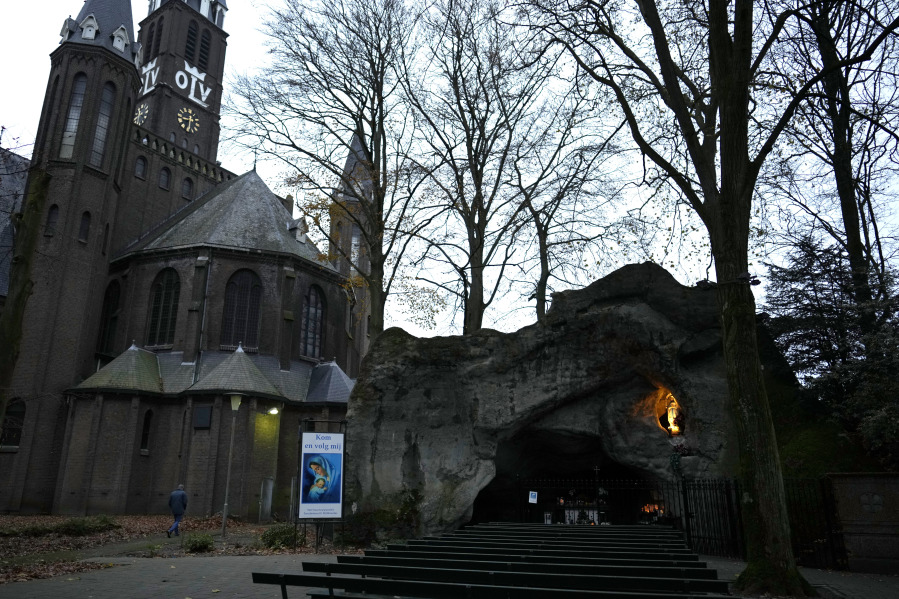SINT WILLEBRORD, The Netherlands — “Everyone is welcome,” reads the sign at the church door in this quiet Dutch village, where neighbors greet each other from tidy porches overlooking manicured lawns.
But that declaration of tolerance seems oddly out of place.
Triggered by economic and cultural anxieties that have whipped up fears about immigrants, people here and throughout the Netherlands have veered far to the right politically. It’s an extreme example of a trend being felt across the continent that could tilt the outcome of this year’s European Union parliamentary election.
In Sint Willebrord, which has few immigrants among its 9,300 residents, almost 3 out of 4 voters chose a virulently anti-migrant, anti-Muslim party in an election last year that shattered the Netherlands’ image as a welcoming, moderate country.
The Party for Freedom, led by a peroxide-haired firebrand named Geert Wilders, received nearly a quarter of all the votes — in a country where less than 5 percent of the people are Muslim — with slogans such as “no Islamic schools, Qurans or mosques” and “no open borders and mass immigration we cannot afford.”
Voters across Europe are increasingly empowering leaders like Wilders who promise to restrict immigration and, in some cases, constrain democratic freedoms: of religion, of expression, of the right to protest.
These forces have bubbled up to varying degrees one country at a time, including in Germany, France, Spain, Sweden and Austria. But before long, experts worry, they could dramatically reshape the continent from the top down.
In June, voters in the 27 member states of the European Union will elect their next Parliament for a five-year term. Analysts say far-right parties are primed to gain seats — and more influence over EU policies affecting everything from civil rights to gender issues to immigration.
“People have a score to settle with ‘old politics,’” said Rem Korteweg, senior research fellow at the Clingendael think tank in The Hague.
In some European nations, the shift to the right has begun to gnaw at the foundations of democracy.
Rising costs, rising anger
Support for Wilders’ Party for Freedom more than doubled since the last Dutch election in 2021. With 23 percent of the vote, Wilders stands a good chance of leading any future governing coalition.
For a quarter century, voters across the Netherlands have grown increasingly disgruntled as successive governments — despite high levels of taxation — were unable to stop the erosion of cradle-to-grave benefits citizens had come to expect for things like education, health care and pensions.
“It is as if people are being forced to vote for Wilders,” said Sint Willebrord resident Walter de Jong, 80. A lifelong baker, he said he was forced to close his business last year because of rising costs and stringent government rules.
The decline in Dutch living standards has coincided with rising immigration. Two decades ago, the Netherlands had a net outflow of migrants; by 2022, that had swung to an influx of 224,000 in a nation of 17.5 million.
The Netherlands has also been hit hard by a cost-of-living crisis affecting everything from the price of health care to food.
The income needed to buy a first home has risen far faster than earnings, according to a 2022 study by the Dutch lender Rabobank.
“Housing is a policy failure,” said Tom Theuns of Leiden University. “And then you have a populist who says, ‘OK, the reason is: Asylum seekers are given priority.’ Even if this is a lie, this is how immigration becomes linked via racist messaging. It’s scapegoating.”



